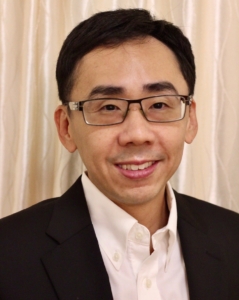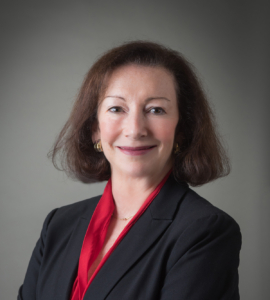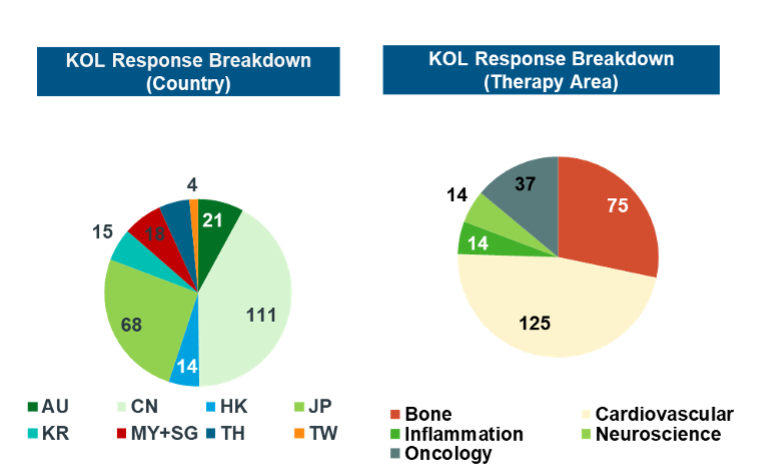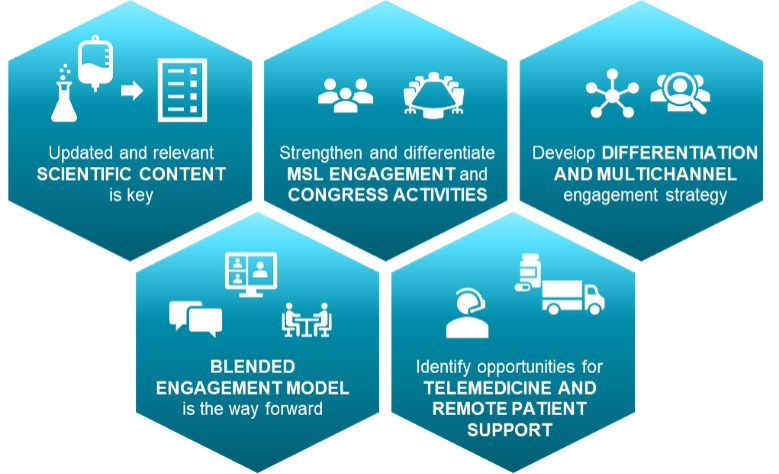Connect with Us
602 Park Point Drive, Suite 225, Golden, CO 80401 – +1 303.495.2073
© 2025 Medical Affairs Professional Society (MAPS). All Rights Reserved Worldwide.



INTRODUCTION
More than a year after the first confirmed cases outside of mainland China, countries across the world and in the Asia Pacific region are still weathering the COVID-19 pandemic. While the magnitude of impact has varied across industries, none were immune to the repercussions of the ongoing and recurring waves of infection. The healthcare and pharmaceutical industries were no exception, as teams scrambled to reprioritize and restructure to adapt to the new normal.
This paper recapitulates the initial assessment of the evolving medical landscape peri-COVID-19 in the Asia Pacific region and builds on this initiative to examine and understand the current state in early 2021 of medical engagement amongst healthcare professionals (HCPs), specifically HCP needs and preferences. These findings are also discussed in comparison with findings from surveys conducted within the wider geographical context of Asia as well as in the United States of America (USA) to distill overarching or similar themes in a concerted effort to provide recommendations optimize medical engagement in the future.
SCIENTIFIC ENGAGEMENTS DURING COVID-19: INITIAL ASSESSMENT
Amgen JAPAC Medical Affairs team’s Project Phoenix presented the “investigate, evaluate formulate” model to assess the current landscape to construct a change management plan for the future1. The impact of the pandemic on the healthcare and pharmaceutical landscape was extensive and included disruptions in non-essential services and face-to-face visits countered by an uptick of the use of remote/digital resources, especially telemedicine. Pharma was affected in terms of halting or reduction in clinical trial activities and delayed product launches. Finally, pharma-physician engagement was met with an unprecedented transition from in-person engagements to digital platforms, and a significant decrease in engagements.
Central future realities were identified which guide and streamline efforts to develop future strategies. These included positioning patients and HCPs at the core of Medical activities, incorporation of modern approaches as well as rapid and radical digital transformation for scientific engagement, and the continual willingness of the Medical Affairs team to adapt in response to the constantly evolving new normal.
OBJECTIVES AND METHODOLOGY
Given the uncertain and ever-changing nature of the pandemic, HCPs have been forced to adjust their priorities and ways of working. Therefore, it is imperative for pharmaceutical companies to understand their behaviours and needs to redirect engagement direction and resources in tune with the current situation as well as refine strategies to ensure effective engagement. To address this insight gap, two agile pulse surveys were conducted by deploying medical teams (medical science liaisons, MSLs) to directly assess medical engagement preferences with key opinion leaders (KOLs) across the region. The expected outcome of the survey was to obtain and analyse direct stakeholder insights to drive future engagement strategies2. This report summarises key findings from the second survey done 6-months after the initial survey and approximately 1-year into the COVID pandemic in Asia Pacific.
Briefly, MSLs interacted with KOLs to obtain responses to the pulse survey. The responses were then inputted into Amgen’s CRM survey to be collated for further evaluation. Finally, survey data was analysed and generated at various levels according to region, affiliate, and therapeutic area (TA). Responses from a total of 265 HCPs were collected by 55 MSLs within the period from 16 November 2020 to 31 December 2020. KOLs were located across the Asia Pacific region, namely Australia (AU), China (CN), Hong Kong (HK), Japan (JP), Korea (KR), Malaysia (MY), Singapore (SG), Thailand (TH) and Taiwan (TW). Response breakdown according to country and therapeutic area is captured in Figure 1.

Figure 1. Survey respondent breakdown according to country and therapeutic area.
KEY FINDINGS ON MEDICAL ENGAGEMENT PREFERENCE
The key learnings from the current pulse survey on medical engagement preference are summarized below2:
Preferred topics of discussion
Identifying physicians’ and KOLs’ preferred topics are important to tailor engagement and content to their needs at any given time. 87% of HCPs selected “Updated scientific data from congresses and publications” as a preferred topic of discussion. This was followed by “Research information and education” and “Therapeutic area discussion/Treatment landscape and approach”, each garnering 56% of votes. Finally, just over a third were interested in “Pipeline information” (35%) and “Information related to treatment, dosing and/or compliance” (34%). It is increasingly clear that HCPs recognize the need for latest information, including scientific and clinical research data, to augment clinical practice and improve patient care.
Preferred medium to access information
As important as the topics of discussion are the methods of delivering the content of these topics. When queried about preferred medium of access to medical education and scientific information, 80% of respondents chose MSL discussions followed by Onsite Academic Congress (59%) and Virtual academies and speaker webcasts (58%). Convenience, interactive format, and availability of latest information set MSL discussions apart from the rest of the mediums across majority of the countries. Of note, HCPs in AU, JP, and TH also remarked that preference for human interaction (familiarity) was another key reason.
Frequency of engagement and preferred channel
In line with the priority given to updated information, the majority (75%) of HCPs across most of the countries preferred an engagement frequency of monthly or one-to-three times a quarter, whilst one-third of HCPs in TH and HK preferred engagements once every two weeks and once or twice yearly respectively.
In terms of preferred channel of engagement, 31% of HCPs were agreeable with virtual and face-to-face engagement whilst 29% stated that they would highly prefer face-to-face engagement after the pandemic abates. HCPs in Korea and Japan expressed an inclination towards virtual engagements (53% of Korean HCPs and 44% of Japan HCPs) compared to their international counterparts. Contrast to that, 71% of HCPs based in MY and SG indicated a strong preference for face-to-face interaction. As a whole, one-in-three indicated acceptance for a blended engagement model in the future.
Long-term virtual and clinical impact of COVID-19
The majority of the respondents stated that digital will play a promising role post-COVID-19 with higher incidence of virtual follow up visits, remote reporting, and virtual patient education. The expectation amongst HCPs (>36% of HCPs in KR, JP, HK and MY+SG) is that the COVID-related changes in their clinical practice are long-term, especially telemedicine. Many HCPs reported that hospital visits have declined, and patients are increasingly seeking out remote consultations. In CN, HCPs also mentioned that patients are looking for convenient tools and guidance for self-management. To cope with these changes, 38% of HCPs indicated the need for virtual patient education tools.
IMPLICATIONS OF MEDICAL ENGAGEMENT PREFERENCE
Given the responses from the HCPs via this survey, the Medical Affairs team has developed several implications to better address these preferences and meet HCP needs in the future. These implications are summarized in Figure 2.

Figure 2. Implications of KOL pulse check survey results to better address HCP preference and needs in the future.
CONSISTENT EMPHASIS ON QUALITY MEDICAL ENGAGEMENT
To strengthen and support the findings and implications derived from this agile pulse survey, other surveys and reports were reviewed to identify recurring themes as well as knowledge gaps of medical engagement during the ongoing pandemic.
One of the key drivers of perceived impact and level of satisfaction amongst respondents was objectivity and quality of information provided by MSLs, who act as a conduit for the exchange of scientific and medical information. Objectivity and quality of information led to better understanding of current treatment options which ultimately leads to improved patient outcomes. Another key driver reported was transparent and lasting relationships which increases physician’s trust in information provided by MSLs which improves understanding of treatment options and patient outcome3. These findings highlight the importance of the quality of scientific content and the integral role that the MSL plays in content dissemination. The importance of academic congresses cannot be discounted within this framework. Whilst in-person international gatherings may not be possible soon, some companies have discussed the feasibility of local congresses to facilitate the relationship-building aspect of congresses whilst adhering to safety and pandemic protocols4.
Consistent with the findings from the current survey, HCPs in Asia Pacific5 and the USA6 also reported diverse individual preferences for channels for engagement (virtual versus in-person) as well as for frequency of interaction. This reinforces the push for a blended engagement model and personalization of medical engagement according to HCP needs and preferences. These surveys also emphasized the disruptions to patient care and management, specifically the shift to telemedicine and the long-term nature of this change. Several challenges brought up by HCPs include reduced access to care, increased restrictions at site of care and access to drug treatments5. In the same vein, HCPs were not spared from COVID-induced challenges including increased workload, lack of resources to support patient care, and financial challenges. Some suggestions for how pharmaceutical companies can provide support for physicians and patients include increasing availability of product samples for physicians and improve or facilitate access to care for patients (e.g. free access to telemedicine consults, improved access to in-home treatments and delivery of medications)6.
THE FUTURE OF MEDICAL AFFAIRS
Despite the many changes during the pandemic and the country-to-country variation in preferences, up-to-date and relevant scientific content remains a top priority for HCPs across the Asia Pacific region. With the demand for valuable, relevant content, arises the need for optimized MSL engagement for personalized content delivery as well as congress activities for wider dissemination of information.
Survey results and data from industry partners with reference to frequency and channel preferences were highly varied. The current data support the importance of developing personalized and multichannel engagement strategies, for which a blended engagement model is the basis for future Medical Affairs activities.
Importantly, constantly raising the level of patient standards of care and support remains a top priority for the healthcare and pharmaceutical industry. Disruptions to current healthcare provision infrastructures and medical practices spotlight the gap that can be filled by pharmaceutical and biotechnology companies. Therefore, efforts to identify opportunities for telemedicine, remote patient support and other areas to support HCPs in the management of patients should be made to address these unmet needs.
ACKNOWLEDGMENTS
The authors would like to acknowledge the Amgen JAPAC Medical Science Liaisons (MSLs) for their assistance in survey deployment and data input. The voluntary participation of KOLs from around the region is greatly appreciated.
We also wish to express appreciation to IQVIA for their assistance in data analysis and MediWrite Asia Inc in editing and proofreading drafts of this manuscript.
REFERENCES
602 Park Point Drive, Suite 225, Golden, CO 80401 – +1 303.495.2073
© 2025 Medical Affairs Professional Society (MAPS). All Rights Reserved Worldwide.

 4 Habits to Optimize the Impact & the Value of Medical Affairs
4 Habits to Optimize the Impact & the Value of Medical Affairs